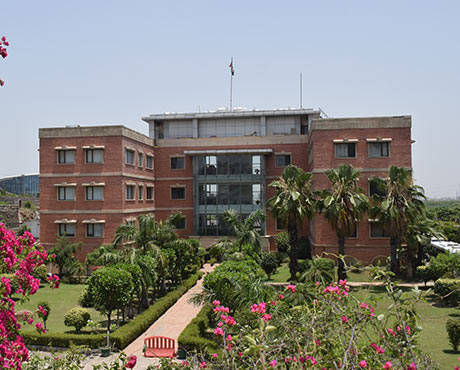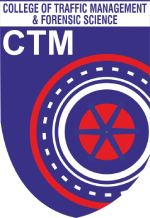
About IRTE
Institute of Road Traffic Education (IRTE), a non-profit research- based organization, was formally established as a Registered Society in December 1991 under the visionary leadership of Dr. Rohit Baluja, along with an esteemed group of professionals. including educationists, medical practitioners, journalists, engineers, ex-servicemen, architects, automobile experts, and members of law enforcement agencies, among others, to embark on a noble mission: to make Indian roads safer for all those who traverse them.
From its very inception, IRTE has remained steadfast in its commitment to capacity building across various domains of traffic management encompassing the disciplines of traffic engineering, traffic enforcement, road crash investigation, driver training and assessment, the development of robust traffic legislation, road safety education, and post-crash management
In 2004, Dr. Baluja was invited to participate in and address the esteemed Road Safety Session at the United Nations in New York. This marked a pivotal moment for IRTE to expand its horizons and become a global entity with a newfound mission of sharing and disseminating the best practices from across the globe, as well as identifying the unique needs of developing nations, particularly in Southeast Asia, and actively contributing to their capacity-building initiatives.
The Institute diligently pursues its noble objectives in close collaboration with a myriad of stakeholders, including corporate entities, research and educational institutions, national and state governments, NGOs, and United Nations bodies by undertaking a diverse portfolio of programs and activities conducted around the year.
As a proud member of the United Nations Road Safety Collaboration and the Commission for Global Road Safety IRTE has been representing India on the global stage. Additionally, IRTE holds the prestigious Roster Consultative Status from the United Nations Economic and Social Council since 2010. reflecting its dedication to the highest standards of global engagement. Dr. Rohit Baluja, as President of IRTE has been participating in the Global Forum for Road Traffic Safety (WP.1) of the UNECE as an Observer from India.
Along with being instrumental in the development of key policies for Powered Two-Wheeler Safety, Vulnerable Road Users, and Informal Transport, IRTE has also supported the Ministry of Road Transport & Highways, Government of India in the formulation of the Motor Vehicles Driving Regulations (2017) on a pro-bono basis: another testament to IRTE's expertise and commitment highlighted through its unwavering dedication to advancing road safety management and legislative development.
In 2010, IRTE established the College of Traffic Management & Forensic Science, which has been recognized as the Centre of Excellence in Road Safety for Southeast Asia.
Training
- Imparted post-license training to over 8,00,000 Commercial Vehicle drivers with Pre & Post assessments.
- Training of IPS Officers (probationers of the SVP National Police Academy) in Traffic Management since 2001.
- Conducted more than 50 courses for the Ministry of Road Transport & Highways in Traffic Management and Road Accident Investigation for road transport officers, highway engineers, and police.
- Conducted over 85 courses for BPR&D, Ministry of Home Affairs, for police officers in the subject of accident investigation.
- Conducted 11 courses in traffic management and accident investigation for Nepal, Sri Lanka, Myanmar, and Tanzania, with support from the Ministry of External Affairs.
- Conducted training for traffic police in 65 cities Under the "Road to Safety" initiative, which was launched by Mr. Nitin Gadkari, the Honourable Transport Minister, in 2014
- Conducting training of the Military Police of the Indian Army, Air Force, and Navy since 2008.
- Conducted training session on “Road Accident Investigation and road safety management” at Maharashtra Judicial Academy
Legal Instruments:
- Rohit Baluja is the Observer for South East Asia at the United Nations' Global Forum for Road Safety (WP-1). By virtue of our experience, the IRTE supported the Ministry of Road Transport and Highways in the drafting of the Motor Vehicles (Driving) Regulations 2017 on a pro-bono basis.
- IRTE had been requested by the United Nations Global Forum to support the Forum towards the development of a code of safe practises for the use of powered two-wheelers in the Southeast Asian Region.
- IRTE, in partnership with the Ministry of Road Transport & Highways, has developed the Draft Code of Practice for Safe Taxi Operation in India as well as the Draft Policy for the Safety of Transporting School Children in All Modes of Transport.
Programs
Student Traffic Volunteers Scholarship Scheme (STVS)
This was the first scheme that enrolled college students to participate in traffic management with the police while being awarded a fee that would help them continue their education. Awarded the Prince Michael International Award in London in 2001, recognising the unique initiative.
School Conclave
Teachers' Training Programme for road safety in schools. IRTE has developed a module and methodology to teach road safety education through the pre-existing subjects of the curriculum. Such education should therefore respect the NCERT principles of cognitive, content, historical, environmental, and ethical validity. Education must also address the current state of affairs.
Journey Risk Management (JRM)
This programme was initiated in response to a call from the oil industry to bring safety to their transportation: a thorough examination of the roadway system, including the FIRs of serious and fatal crashes, engineering flaws, and road user behavior, and supported by all facilities and systems available along the route.
Highway Literacy Program
This was developed primarily for the NHAI, to bring a system of road safety education to the villages along national and state highways. This would be done based upon safety audits, suggesting engineering improvements, and also training the police along the route.
Towards Responsible Youth
University Students Awareness Programme in Road Safety has been initiated to create awareness amongst university students about driving regulations, techniques of defensive driving, the importance of seat belts and helmets, and the dangers of drunken driving.
Adoption of Cities & Highways
- On the invitation of Dr. Kiran Bedi, Hon, Lt. Governor of Pondicherry, the IRTE adopted the Union Territory of Pondicherry for capacity building in road safety management from October 2018 to May 2020. Our contribution, which was supported by Diageo India Ltd, was aimed at training police and highway engineers, conducting road safety audits, developing a road accident data base, and devising an enforcement strategy. This has resulted in a reduction of road accident fatalities of over 21% in the calendar year 2019.
- In 2019, the IRTE and the Haryana Police signed a memorandum of understanding for the IRTE to adopt the 183-kilometer National Highway 44 (Delhi to Ambala) on a pro bono basis, as well as to train police trainers in the domains of road safety management and accident investigation.
- With the ideology of a Safe Systems Approach, IRTE developed a sustainable safety enabling plan for the NH corridor—276 km from Shambhu Border (Ambala) to Wagah Border (Amritsar).











